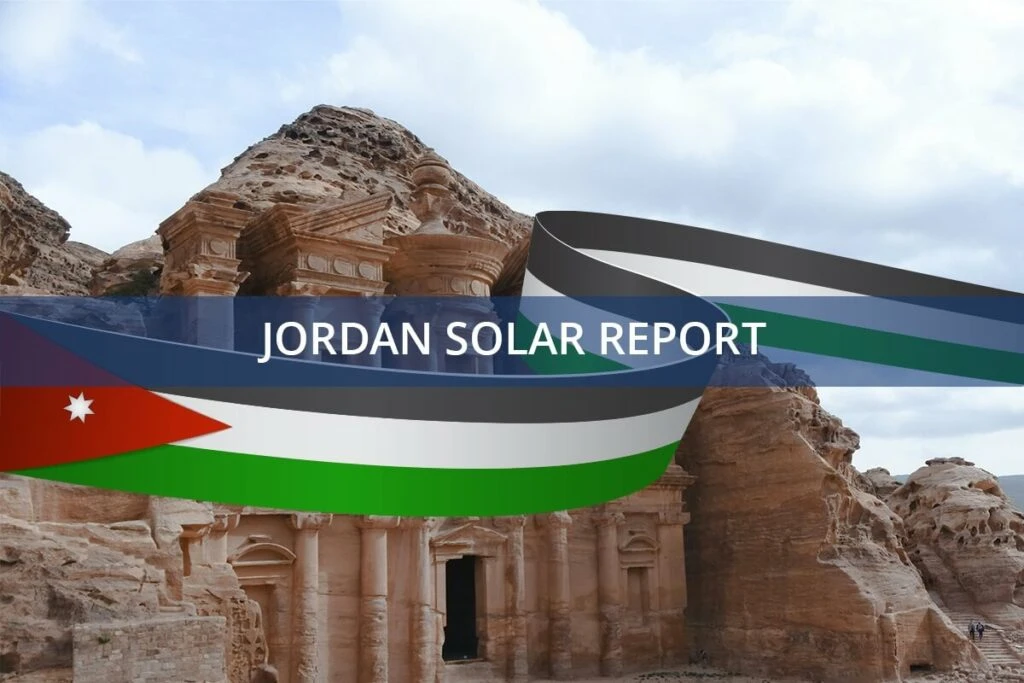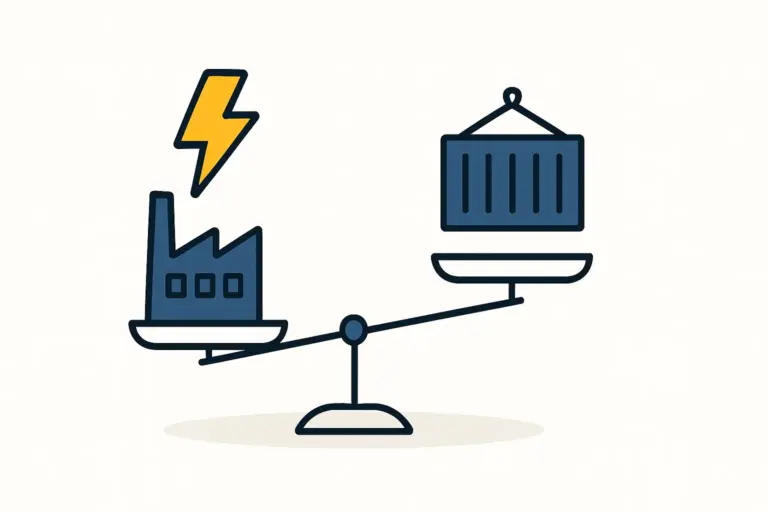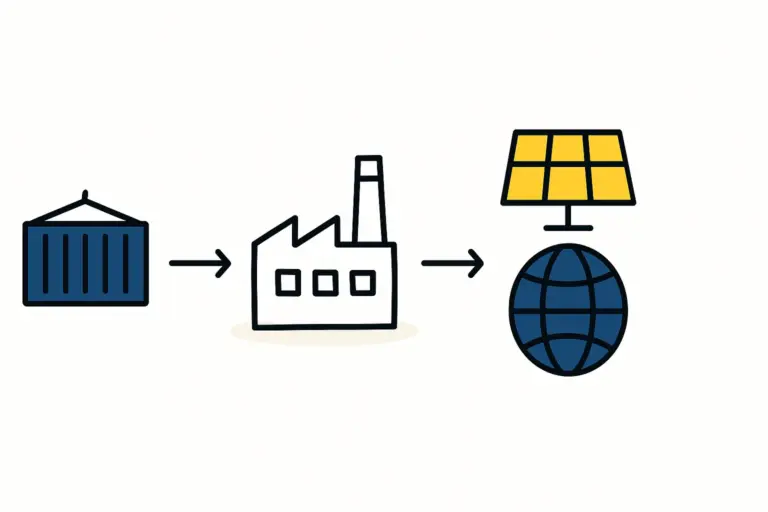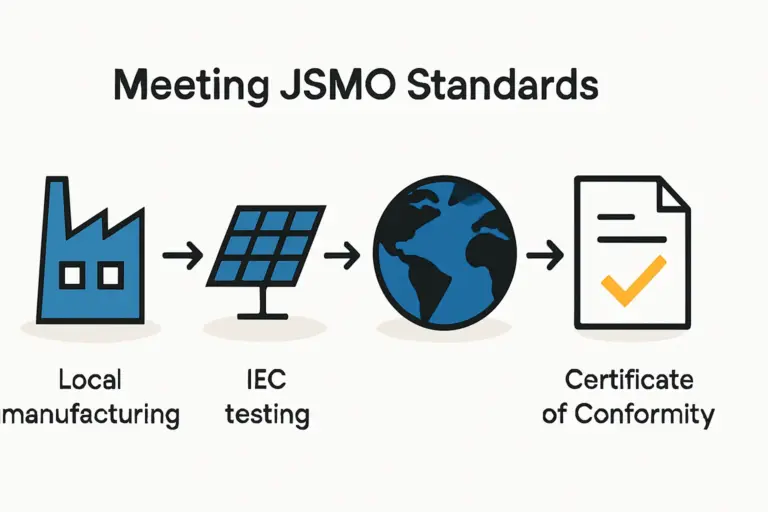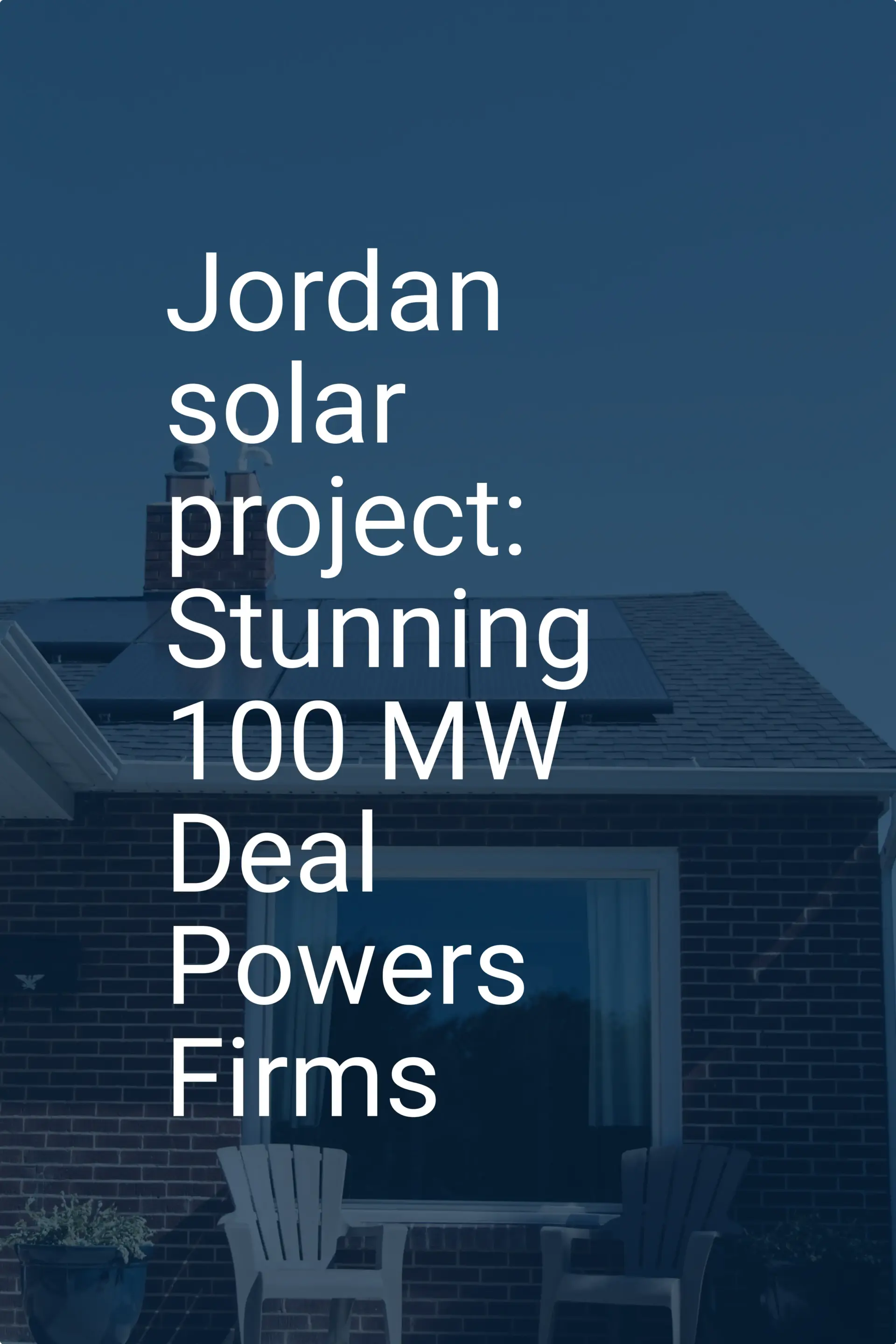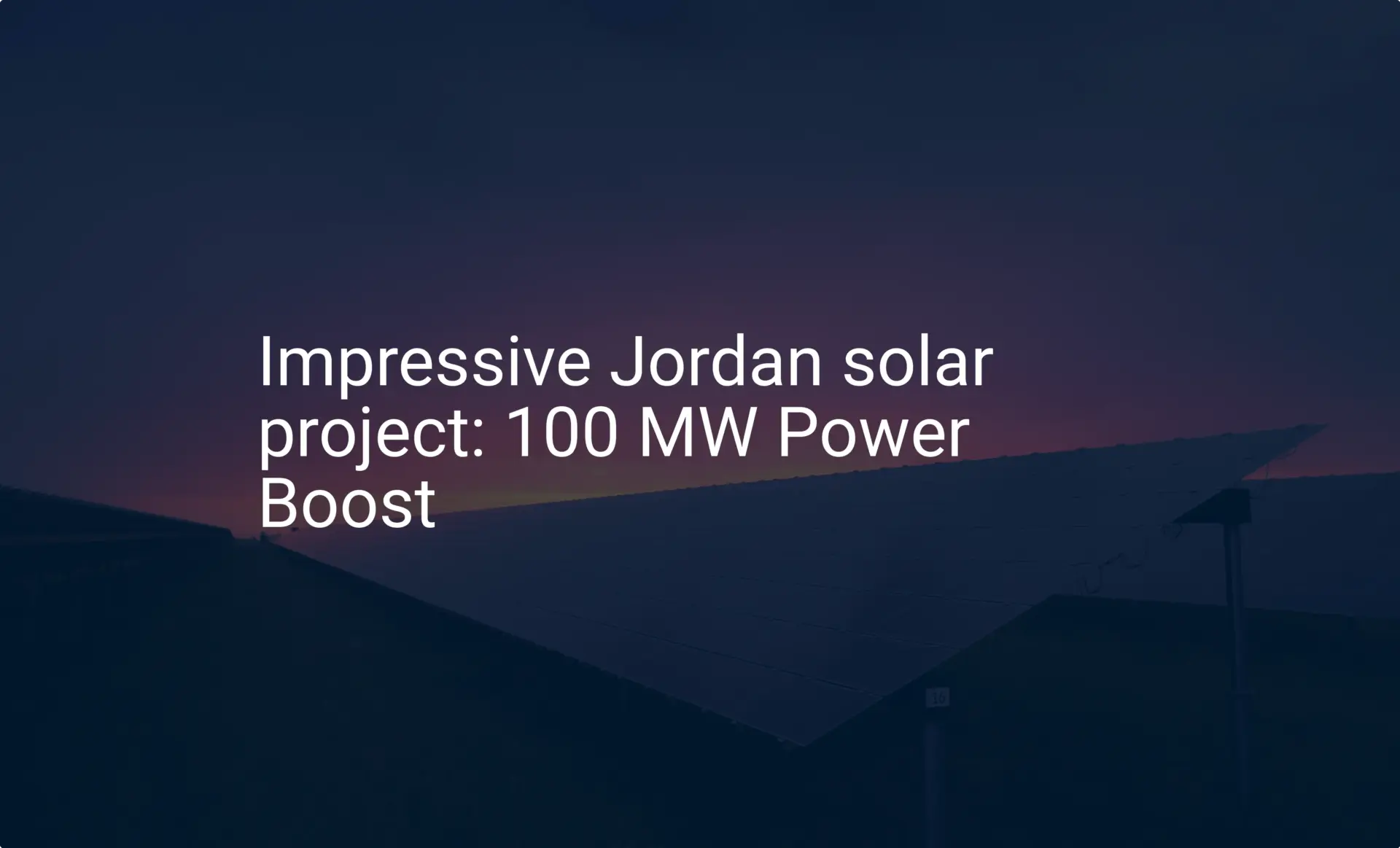An entrepreneur considering a new manufacturing venture often focuses on technology, market demand, and capital. In many emerging economies, however, the most significant competitive advantage lies not on the factory floor but within the country’s legal code.
For those looking to establish a solar module manufacturing plant, Jordan presents a compelling case. Its national legislation—specifically Investment Law No. 30 of 2014—creates a uniquely favorable business environment. This law is more than a set of regulations; it is a clear invitation to investors in strategic sectors, particularly renewable energy. It systematically dismantles common financial barriers like import duties and high corporate tax rates, transforming Jordan from merely a sunny country into a strategic hub for solar manufacturing.
This article offers prospective solar investors a detailed analysis of this framework.
Understanding Investment Law No. 30: The Foundation of Jordan’s Economic Strategy
Enacted in 2014, Jordan’s Investment Law No. 30 is the primary legislative tool for attracting and regulating foreign and domestic investment. It aims to enhance economic development, create employment, and promote exports by offering a stable, transparent set of incentives.
The law established the Jordan Investment Commission (JIC) as a single, streamlined point of contact for investors. The JIC manages applications, grants licenses, and ensures that qualifying projects receive the benefits stipulated by the law. For an entrepreneur new to the region, this centralization simplifies what can otherwise be a complex bureaucratic process.
The core principle is clear: to make Jordan one of the most accessible and profitable locations in the Middle East for key industries, including solar energy component manufacturing.
Core Financial Incentives for Solar Module Manufacturers
The practical impact of Law No. 30 is most evident in the direct financial relief it provides, significantly reducing both the initial capital expenditure (CAPEX) and ongoing operational costs (OPEX) for a new factory.
Exemption from Customs Duties
One of the most substantial initial costs for a solar module factory is the importation of specialized equipment. A complete solar module production line involves numerous machines, from cell stringers and laminators to testers and framing stations. Under Law No. 30, all fixed assets required for the project—including machinery, equipment, and production supplies—are fully exempt from customs duties.
This means an investor can import millions of dollars worth of equipment without incurring the typical 5-30% import tariffs common in other regions. This exemption also extends to spare parts, keeping maintenance costs manageable over the long term.
Zero-Rated General Sales Tax
In addition to customs waivers, imported fixed assets and production materials are subject to a zero-rated General Sales Tax (GST). While a customs duty is a tax on importing a good, a sales tax applies to its sale or consumption within the country. For project-related imports, this zero-rating further lowers the upfront investment burden and improves a project’s cash flow from day one.
Reduced Income Tax Rates
Perhaps the most significant long-term benefit is preferential income tax treatment. While Jordan’s standard corporate income tax rate can be 20% or higher, projects established within designated ‘Development Zones’ pay a highly competitive, flat income tax rate of just 5% on their profits. This creates a powerful incentive for basing a manufacturing facility in one of these strategic areas.
Strategic Zones: Choosing the Right Location for Your Factory
Investment Law No. 30 defines specific geographical areas where enhanced incentives apply. For a solar manufacturer, the choice between a ‘Development Zone’ and a ‘Free Zone’ depends entirely on the business model and target market.
Development Zones
These are designated areas within Jordan aimed at stimulating economic activity for domestic and regional markets. A solar module factory located in a Development Zone benefits from:
- A flat 5% corporate income tax.
- Complete exemption from customs duties and sales tax on production inputs and fixed assets.
- Exemption from building and land taxes.
This model is ideal for a manufacturer planning to serve Jordan’s growing domestic solar market as well as neighboring countries like Iraq, Syria, and Saudi Arabia.
Free Zones
Primarily located near ports and borders (such as Aqaba or Queen Alia International Airport), Free Zones are designed for export-oriented businesses. Companies operating within a Free Zone receive even more aggressive incentives, including:
- 100% exemption from income tax on profits generated from exports.
- 100% exemption from customs duties and sales tax.
- No restrictions on foreign ownership or capital repatriation.
For an entrepreneur whose primary goal is to export solar modules to European, African, or wider Asian markets, a Free Zone offers an unparalleled financial structure built on a cost-effective, stable base.

The Application Process: A Structured Overview
While the benefits are substantial, accessing them requires a formal application process through the Jordan Investment Commission (JIC). The typical steps include:
-
Submission of Application: The investor submits a detailed project proposal, including financial forecasts, employment projections, and technical specifications. A comprehensive solar factory business plan is essential at this stage.
-
Project Evaluation: The JIC reviews the application to ensure it aligns with the strategic objectives of the Investment Law and falls within a qualifying economic sector.
-
Approval and Registration: Once approved, the project is registered, and the investor receives an ‘Investor’s Card,’ which serves as official recognition and facilitates interactions with other government bodies.
Based on experience from J.v.G. turnkey projects, while the process is well-defined, careful preparation of all documentation is critical to a smooth and timely approval.

Frequently Asked Questions (FAQ)
What is the minimum investment required to qualify for these benefits?
The law does not specify a rigid minimum investment amount. Instead, qualification is based on the project’s sector, its potential for job creation, and its alignment with Jordan’s economic goals. A well-structured plan for a 20-50 MW solar module factory would certainly be considered a significant project.
Do these benefits apply equally to local and foreign investors?
Yes, Investment Law No. 30 grants the same set of incentives and guarantees to both Jordanian and non-Jordanian investors, ensuring a level playing field.
How long do the tax and customs exemptions last?
The exemptions on customs duties and sales tax for fixed assets apply during the project’s establishment phase. The preferential income tax rates (e.g., 5% in Development Zones) apply for the operational life of the project, as long as it remains in compliance with the law.
What are the main obligations for an investor under this law?
Investors must execute the project as described in their application, maintain proper accounting records, and comply with Jordanian labor and environmental laws. The JIC may conduct periodic reviews to ensure compliance.
Conclusion: Jordan as a Strategic Hub for Solar Manufacturing
Jordan’s Investment Law No. 30 offers a powerful, legislated advantage to entrepreneurs entering the solar manufacturing industry. By virtually eliminating customs duties and sales tax on capital goods and offering highly competitive income tax rates, the framework directly addresses the primary financial hurdles of starting a new factory.
The choice between operating in a Development Zone or a Free Zone allows investors to tailor their strategy for either regional markets or global exports. For the savvy investor, this legal framework, combined with Jordan’s political stability and strategic location, makes the country a prime candidate for establishing a successful and profitable solar manufacturing operation. Understanding these nuances is a key step in the planning phase of a solar factory.



